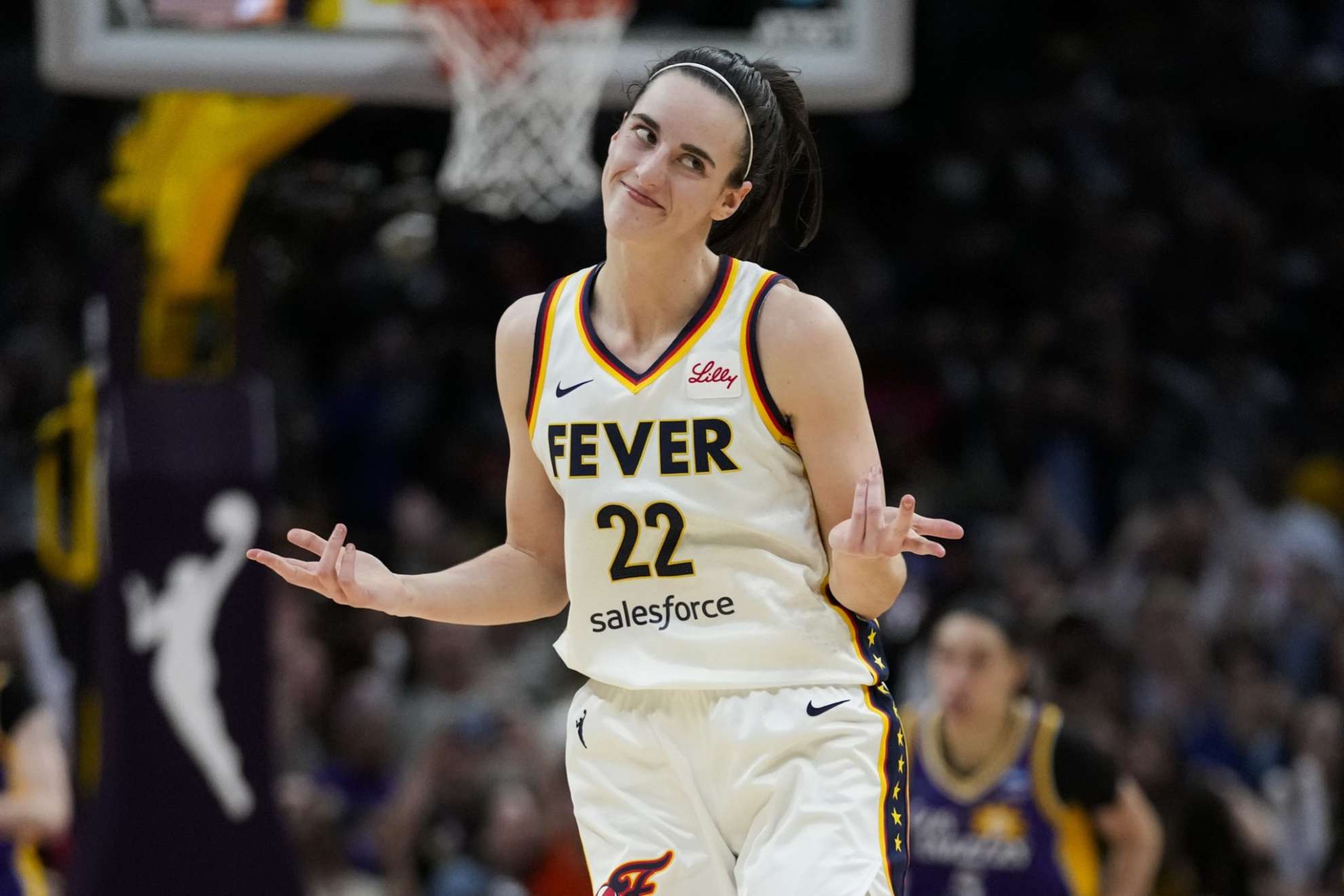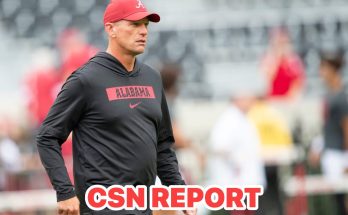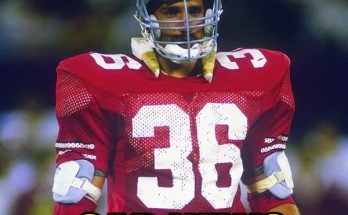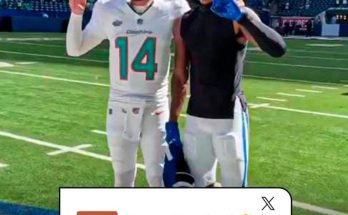With the WNBA season drawing near, Caitlin Clark’s NFL partnership ignites the flag football revolution for the Olympics.
As the WNBA season draws near, one of the most electrifying athletes in the basketball world, Caitlin Clark, has made headlines not just for her skills on the court but for her significant impact off it. Clark, a generational basketball talent, recently announced a groundbreaking partnership with the National Football League (NFL) aimed at promoting flag football. Her influence extends beyond basketball, contributing to the growing movement to elevate flag football as an Olympic sport. With the sport set to debut at the 2028 Los Angeles Olympics, Clark’s involvement could serve as a game-changer, igniting a revolution in how the world perceives and engages with flag football.
Caitlin Clark: A Trailblazer Beyond Basketball
Caitlin Clark is widely regarded as one of the most prolific scorers in college basketball history, dazzling audiences with her deep three-pointers, exceptional court vision, and competitive fire. While her rise in basketball has been meteoric, her passion for sports transcends a single game. Clark’s partnership with the NFL is a testament to her versatility as an athlete and role model, reinforcing her belief in the power of sports to shape young lives.
By stepping into the world of football, she is lending her credibility and visibility to an emerging movement—one that seeks to bring flag football to the highest level of competition in the world. Clark’s ability to bridge multiple sports adds a unique layer to the Olympic campaign for flag football, drawing attention from a new demographic of fans who may not have previously considered the sport seriously.
The Growth of Flag Football and Its Olympic Ascent
Flag football has gained rapid momentum as a global sport, thanks to its accessibility, inclusivity, and emphasis on athleticism. Unlike tackle football, flag football eliminates physical collisions while preserving the strategic complexity and excitement of the game. This makes it appealing to athletes across various sports, including basketball, soccer, and track and field.
The International Olympic Committee (IOC) officially approved flag football’s inclusion in the 2028 Los Angeles Olympic Games, marking a historic milestone for the sport. With the backing of the NFL and global sports organizations, flag football is poised to gain even more visibility on the international stage. Clark’s role in promoting the sport aligns perfectly with this movement, as her star power can help drive grassroots participation and inspire young athletes—especially women—to consider flag football as a viable competitive outlet.
The NFL’s Strategy: Expanding Flag Football’s Reach
The NFL has been at the forefront of promoting flag football worldwide, recognizing its potential as a global sport. Through initiatives like the NFL FLAG program and international competitions, the league has worked to expand participation at the youth and amateur levels. Clark’s involvement enhances these efforts by bringing a fresh perspective to the game and tapping into basketball’s massive audience.
By aligning with Clark, the NFL strategically connects with young female athletes, a key demographic for flag football’s growth. Her partnership sends a powerful message that flag football is not just an alternative to tackle football but a legitimate and exciting sport in its own right. The NFL’s push for flag football aligns with its long-term vision of making the game more accessible and reducing the barriers to entry, particularly in international markets where tackle football has struggled to gain traction.
Clark’s Role in Flag Football’s Evolution
Clark’s influence on flag football extends beyond promotional efforts—her presence as a high-profile athlete bridges the gap between basketball and football, demonstrating how multi-sport athletes can thrive across disciplines. Her ability to connect with young athletes and emphasize transferable skills, such as agility, vision, and teamwork, strengthens flag football’s appeal.
Moreover, Clark’s endorsement of flag football as a legitimate Olympic sport adds credibility to the movement. With her backing, more young athletes may consider flag football as a pathway to elite competition, much like basketball or soccer. Clark’s presence at NFL FLAG events, youth clinics, and promotional campaigns further solidifies her role as a trailblazer in the sport’s rapid growth.
Women’s Sports on the Rise: A Unified Movement
Clark’s involvement in flag football also highlights a broader trend in women’s sports—one of expansion, recognition, and increased investment. The surge in viewership and sponsorships for women’s basketball, soccer, and other traditionally male-dominated sports has paved the way for flag football’s rise.
Women’s flag football has already gained traction at the collegiate level, with the NAIA (National Association of Intercollegiate Athletics) and NJCAA (National Junior College Athletic Association) sanctioning the sport. The NFL and other organizations have pushed for more scholarship opportunities and professional pathways for female flag football players, further legitimizing the sport.
With Clark leading the charge, flag football could experience the same surge in popularity that women’s basketball has enjoyed in recent years. Her ability to generate excitement and engagement on social media, coupled with her reputation as a generational talent, ensures that flag football will receive unprecedented attention leading up to the 2028 Olympics.
The Road to Los Angeles 2028: What’s Next?
With flag football’s Olympic debut approaching, the next few years will be critical in establishing the sport’s legitimacy on the global stage. Clark’s involvement with the NFL signals a shift in how flag football is perceived—not just as a recreational activity but as a sport worthy of Olympic competition.
The NFL’s continued investment in international flag football tournaments, grassroots programs, and collegiate pathways will play a crucial role in developing elite-level talent for the Olympics. Clark’s presence in these initiatives could help bridge the gap between mainstream sports audiences and flag football enthusiasts, ensuring that the sport reaches its full potential by 2028.
Additionally, Clark’s advocacy for women in sports could lead to greater investment in female flag football leagues, scholarships, and professional opportunities. Her voice in the conversation amplifies the importance of gender equity in sports, reinforcing the idea that women’s flag football deserves the same recognition and support as its male counterpart.
A New Era for Flag Football
Caitlin Clark’s NFL partnership marks a pivotal moment in the evolution of flag football, setting the stage for its Olympic debut in 2028. As one of the most influential athletes of her generation, Clark’s involvement ensures that flag football gains the visibility and credibility needed to thrive on a global scale.
Her impact transcends basketball, demonstrating the power of cross-sport collaboration in shaping the future of athletics. By championing flag football, Clark is not only diversifying her athletic influence but also inspiring a new generation of multi-sport athletes to embrace new opportunities.
As the WNBA season kicks off and the road to the 2028 Olympics continues, one thing is clear—Caitlin Clark’s journey is just beginning, and her influence will be felt far beyond the basketball court. With her at the forefront, the flag football revolution is well underway.



